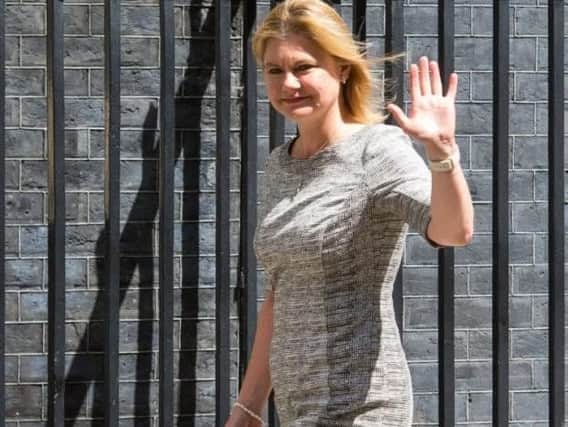New grammar schools must take more pupils from poor families - Justine Greening


Her comments come as a Government consultation said families who are not included in traditional measures of deprivation, but whose household income is below the national average, find it harder to access outstanding schools and do not perform as well as their wealthier peers.
The consultation analysing family circumstances and education said there is "very limited understanding" of the experiences of children in families with "modest incomes" compared to the experiences of youngsters in the wealthiest 10% of families.
Advertisement
Hide AdAdvertisement
Hide AdIn a speech on Thursday at St Mary's University in Twickenham, south-west London, Ms Greening is expected to say she wants new schools to "work for everyone", adding that a "new model of grammars" will be "truly open to all".
The "ordinary working families" are defined as those on modest incomes who tend to live outside the inner cities, including in suburbs and coastal areas.
Labour leader Jeremy Corbyn tweeted: "If the Tories wanted to help all children, they'd scrap their divisive grammar school plans & properly fund schools."
Ms Greening is expected to say: "This is a Government that believes that ordinary working families shouldn't have to 'make do'.
Advertisement
Hide AdAdvertisement
Hide Ad"We believe they deserve better than that. Because ordinary working families are the backbone of our economy, of our country.
"There's an old adage - what gets measured gets done. And this Government is focussed on getting things done.
"So yesterday, my department launched a technical consultation to help us understand how the children of ordinary working people are faring in our education system."
Ms Greening will say she wants to "knit together" the different parts of the education system in a bid to raise attainment.
Advertisement
Hide AdAdvertisement
Hide AdShe is expected to say: "We believe that universities, independent schools, and faith schools have a role in creating better options for parents.
"And I believe that selection - in new, 21st century state grammar schools - will add to the options available to young people - to truly help make the most of their talents.
"And grammars should not just be for one better off group in society to attend. We want to see more children from disadvantaged families get into grammars - that's vital.
"I welcome that many grammar schools are now changing their admissions code to give a priority of places to these children - I want all of them to follow this example.
Advertisement
Hide AdAdvertisement
Hide Ad"We certainly will not lose sight of the fact that we want grammars to achieve more for disadvantaged children.
"But we also shouldn't lose sight of the fact that many young people from an ordinary working class background already attend our existing grammar schools.
"And so, the new schools that we will create will support young people from every background, not the privileged few. Young people on free school meals - and those eligible for pupil premium.
"Young people from ordinary working families that are struggling to get by. I want these new schools to work for everyone.
Advertisement
Hide AdAdvertisement
Hide Ad"This will be a new model of grammars, truly open to all - we will insist on that. And it will reflect the choices of local parents and communities."
Children in grammar schools are as likely to be from ordinary working families as children in non-selective schools, the Department for Education said.
It said 36% of children in grammar schools are from this group compared to 35% in non-selective schools, but 21% of pupils from ordinary working families are in an outstanding school compared to 25% of those in families above median income.
Shadow education secretary Angela Rayner said the Government had "fiddled" the figures regarding grammar schools and needed to invest more in classrooms generally.
Advertisement
Hide AdAdvertisement
Hide AdShe told BBC Radio 4's Today programme: "Grammar schools do not improve social mobility and therefore they are not good for our education system.
"They are trying to bring in a policy where there is a life raft for a very, very tiny minority if you're lucky enough go through the private tuition to get yourself into these grammar schools while the rest of us can rot."
Pressed on whether she was arguing for policies that a number of senior Labour figures did not believe in in practice because they sent their children to private, or selective, schools, Ms Rayner said: "Well, I believe in it as practice because I'm looking at the evidence, and my kids are not guinea pigs, let me tell you.
"And all my children go to a comp system because we know what we did is improve school education. We transformed the education system when Labour was in power."